What happens when we take protein AND training to the limit?
In my previous post, I reviewed a study that examined what extremely high protein consumption does to experience lifters’ body composition. Despite the reported consumption of 800 additional kcals and 158 more grams of protein than the “normal” comparison group, the Max Protein (↑PRO) group did not have any change in body weight or fat mass. Further, no kidneys were fried!
That study was published in 2014. Today’s 2015 study is from the same group and is a follow up. It’s titled, A high protein diet (3.4 g/kg/d) combined with a heavy resistance training program improves body composition in healthy trained men and women – a follow-up investigation.
I want to remind readers of why this group did the first study. The official USA recommended daily allowance (RDA) for protein is 0.36 g/lb/day. That’s 60g/day for a 165 lbs individual. As the researchers cited, studies have suggested that physically active people should consume higher amounts of protein. Further, despite the lack of evidence in the research literature, there is a popular meme that high protein consumption will cause kidney damage.
The previous study was like a pilot and primarily examined the body composition of the participants. That left open the question of how blood work is affected by ultra high protein consumption. As well, the training programs for the participants were not controlled. Perhaps the variability of the training stimuli for everyone limited the potential gainz of the ↑PRO group. So, the researchers continued their work and now we have this follow up study.
Let’s find out how blood work is affected by ↑PRO and how systematically controlled intense training interacts with protein to the max!
Methods
This study also lasted 8 weeks and had a mix of male and female participants. All of them were “trained”. There were 2 groups. The first continued their “normal” diet. The second group was instructed to eat more than 3 grams of protein per kg of body weight every day. All of the participants logged their diet info on the MyFitnessPal app and were counseled weekly. They were instructed to do no aerobic exercise during the study. They were all counseled weekly on a specific training program and logged their progress in the MyFitnessPal app. The program had them train 5 days a week, with days split by pushing, pulling, and leg movements/exercises. The weights varied between light and heavy. Overall, I think it was a decent program.
Below are the starting descriptive stats for each group. As always, they’re group averages and rounded to the nearest whole number for the ease of viewing.
All of the participants had pre/post measurements taken of their scale weight, overall body composition, 1RM strength for the bench press and squat, vertical and long jump lengths, max # of pull ups, and blood work.
Results
As always, let’s cut to the chase.
Both groups gained an average of 3 lbs of LBM, while only the ↑PRO group lost an average of 4 lbs of FM.
Below is a breakdown of the body composition results, which are the averages for the groups.
Unlike the previous study, the researchers broke down the results by individuals. Below are the figures from the paper with the body composition results.
How much protein did the groups consume? Below are the reported daily averages consumed.
Below are the reported daily average kcals that the groups consumed.
Below are the results for the athletic tests.
I know that the lifters in the audience are interested in the weights used for the squat and bench press. So, below is the breakdown for those lifts.
How about the bloodwork? There was no change for either group between their initial blood tests and their final tests!
Like the previous study, there was an expectation that there would be a high dropout rate. A total of 25 participants dropped out of the study. Two were injured, 1 had military service, and the remaining 22 did not provide a reason. There were no reports of kidney damage.
Implications / Thoughts
Like before, the reported kcals consumed and protein ingested during the study are very different between the groups. Once again, the ↑PRO group reported consuming more kcals and did not gain FM. This time, with the addition of the heavy training, they ended up losing FM! That is another dramatic result. We have here 2 groups of well-trained lifters who did a serious training program that resulted in 3 lbs of LBM and strength gainz. For lifters past their newbie gainz, that is a feat. While the ↑PRO group had a higher compliance with their training than the “normal” group did (93% vs 78%), the results are large enough in magnitude that they may only be partially explained by that difference for the mass gainz.
Like before, the researchers cite studies that have shown protein increases metabolic rate. Trained individuals have also been shown to have a very different response to overfeeding and protein consumption than newbies have. Trained individuals have a kind of resistance to gaining weight/FM. The researchers also discuss the implication from other studies that advanced lifters may not need more protein than newbies. That may be so for maintaining LBM, but these results suggest that a period of increased protein consumption may be a way for trained lifters to drive more gainz, and without the worry of gaining FM.
In Conclusion
This study provides further evidence that periods of dramatic overfeeding of protein are fine for advanced lifters. Coupled with serious weight training, that may help drive more hard to come by gainz, a la “lean bulk” style. Of course, results will vary. The breakdown of the results by individuals shows us that there are absolutely “hard gainers” out there. While the results may not be as dramatic as the advertisements in magazines and online may claim, there may be some actual benefit from eating all the proteins!
If you have any questions about this study or anything I said, please feel free to leave a comment. I will get back to you and others may have insight to offer, too. If you have any questions or topic suggestions that you would like answered as a post, then please email me at robert@analyticfitness.com.
Don’t forget to like Analytic Fitness on Facebook, or follow me on Twitter or the other social medias!

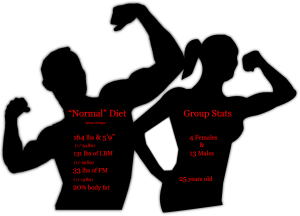
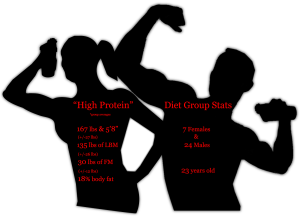
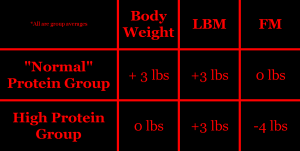
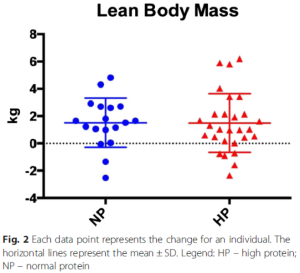
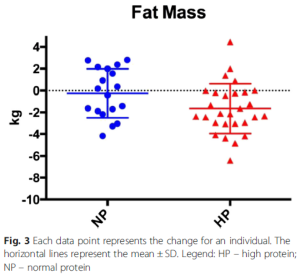
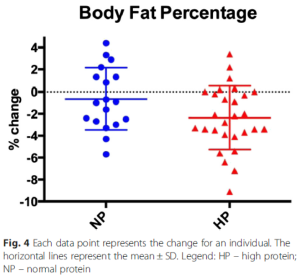
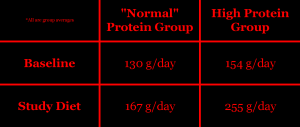
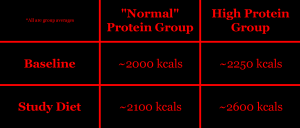

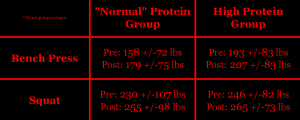




POST REPLY